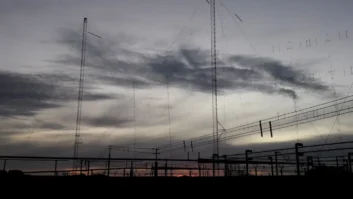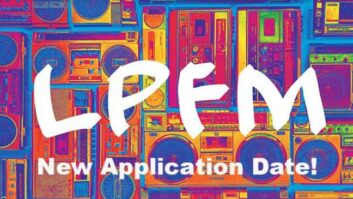
It’s now easier to notify the commission that you’ve raised your FM IBOC power. But it’s possible we’ll see some tweaks to the order down the road, after a major can of whoop-a** was filed this week in the IBOC docket at the commission.
In addition to a petition for reconsideration I’ve already written about, two more were filed this week, as were two applications for reviews and two motions for stay.
These filings do not delay the effectiveness of the FM IBOC elevated power order, I’ve learned this week. However, at some point the commission will need to address these oppositions. The FCC said in its January decision that if it has to come back and tweak the power increase order, it will.
Alan Jurison re-filed his petition for recon, in which he takes issue with the data in NPR’s study. He calls it flawed and saying those results “unfairly skewed the data to show more digital interference on elevated digital operations,” which really restricted how many FMs could really raise their digital power. NPR has taken issue with Jurison’s characterization of its data.
The commission had dismissed Jurison’s original petition, along with that of Jonathan Hardis, saying they arrived too early. Hardis also recently re-filed.
Mullaney Engineering also has filed a petition for reconsideration, saying NPR’s 2009 results “appear to contradict” results from its 2008 studies.
John Mullaney wrote that many in the industry were “shocked when the commission agreed to accept the ‘negotiated’ compromise in interference protections agreed to by NPR and iBiquity.” He continued: “It is an insult to the existing FM licensees … to pretend that IBOC does not cause interference to existing analog FM service areas because vested interests in iBiquity’s IBOC radio system have negotiated or redefined the definition of what is ‘objectionable’ interference.”
He suggests re-allocating TV Channels 5 and 6 for the creation of an all-digital radio service.
Prometheus Radio Project filed an application for review, saying the Media Bureau decision to approve the power increase warrants full commission review because the staff decision was “arbitrary and capricious” and that it ignored the potential effect higher-power FM IBOC operation would have on LPFMs.
Press Communications says, in an application for review and motion for stay, that the full commission should review the Media Bureau decision because the outcome is “biased.” Press, the licensee of five New Jersey Class A stations, says the decision to approve the power increase “was largely based on ‘testing’ by the very parties who have a financial stake in the outcome and was granted without a full technical review and verification” by an independent lab.
Press also takes issue with the interference remediation plan laid out in the order: “To suggest that a broadcaster would have to aggregate six continuous complaints and then have to wait months for the complaints to be remediated is ridiculous.”
And finally, Peter and John Radio Fellowship, licensee of WRBS(FM), Baltimore said in a motion for reconsideration and a motion for a partial stay that WRBS already receives “significant interference” from the –20 dBc digital operation of grandfathered short-spaced first-adjacent channel WRBT(FM), Harrisburg, Pa. If WRBT can now increase its digital power without prior commission permission, WRBS predicts it will receive “significantly increased interference within its protected contour,” which will result in the “unnecessary expenditure of significant resources by WRBS, WRBT and the FCC in remediating that interference.”
Whew.
Well, iBiquity had asked for more time to answer all the objections, predicting more would be filed, and they were right. Time will tell how all of this shakes out.












